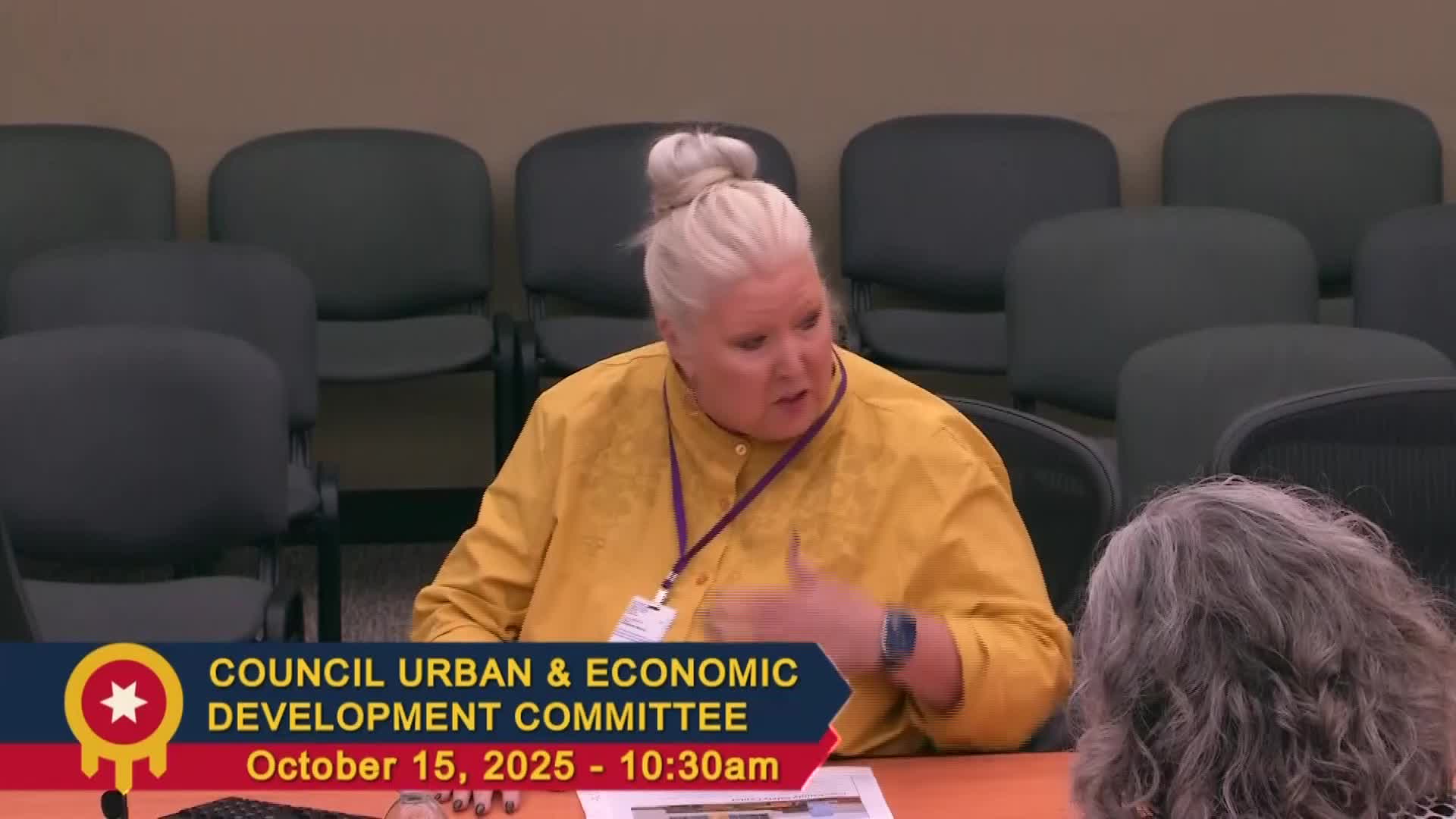Family Safety Center Nears Opening; Leadership Seeks Operating Funds and Partner Commitments
Get AI-powered insights, summaries, and transcripts
Subscribe
Summary
Family Safety Center leaders briefed councilors on the nearly completed $24 million facility, its on‑site partners and an estimated $500,000 annual operating budget; donors and tribal partners were credited for large gifts and the center will host law enforcement and court services.
Family Safety Center leaders updated councilors on progress toward opening a new, consolidated facility to serve victims of domestic violence, child abuse and related crimes.
Suzanne Stewart, CEO of the Family Advocacy Center, said the new building’s construction budget is $24 million and that funding has come from a mix of public and private sources: she identified a $1 million ARPA contribution from the City of Tulsa, $2 million from Tulsa County, $2 million from the state, a $2.4 million donation from the Case family and additional philanthropic contributions. Stewart said the center is raising recurring operating funds and expects operating costs to be about $500,000 per year once the new facility is fully staffed and occupied.
The center will co‑locate multiple partners: Domestic Violence Intervention Services (Divis) (advocates and attorneys), Tulsa Police Department domestic violence units, Child Advocacy Network, Legal Aid, Tulsa Metropolitan Ministry, and others. Stewart said the center has secured commitments from several partners and is negotiating additions such as an on‑site courtroom for protective‑order dockets and potential embedded staff from tribal law‑enforcement agencies.
Stewart outlined services already provided from existing space: crisis line support, legal help (which she said is the highest requested service), forensic medical exams (SANE), childcare services and a year‑round children’s program called Camp Hope. She said the current building will move in phases, with an internal punch list beginning Nov. 17, furniture moves starting Dec. 1, relocation late January and full operations planned for February. Stewart asked councilors to consider ongoing operating support from public and philanthropic partners.
Councilors praised the long‑running partnership and asked for ongoing briefings. Several raised the city’s high rate of domestic‑violence 911 calls compared with peer cities and asked how shared data and partnerships could reduce repeat victimization. Stewart described a program that increased arrests for violent physical assaults by enabling follow‑up investigations when perpetrators left the scene; she said initial results show more arrests and fewer repeat calls in target cases.
Stewart closed by saying the center will continue to rely on a mix of federal grants, philanthropy and modest public support and invited council engagement about long‑term operations and partnerships.
